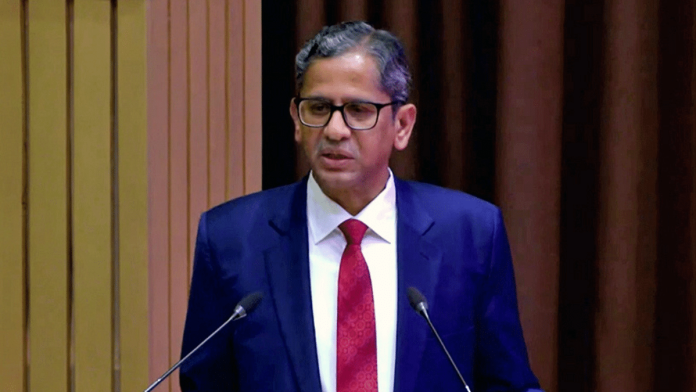New Delhi – In September 2021, then-Chief Justice of India N.V. Ramana sharply criticized sections of the media for portraying the Tablighi Jamaat’s role in the COVID‑19 spread through a communal lens, reported the Madhyamam.
While hearing petitions challenging news channel coverage of the Nizamuddin Markaz event, Justice Ramana remarked that depicting everything in India through a religious prism could seriously damage the nation’s reputation. He warned that this tendency to communalise would ultimately “bring a bad name to the country” .
This judicial rebuke came when the Delhi High Court acquitted 70 Indian nationals associated with the Tablighi Jamaat. The court quashed 16 FIRs, determining that attendees had gathered at the religious site before lockdown orders (Section 144 of CrPC) were issued, and thus did not break any legally enforceable rules . Key findings included:
No evidence the accused violated the five prohibitory conditions outlined in the lockdown orders.
No proof of unlawful departure from the Nizamuddin Markaz or contribution to COVID‑19 transmission.
Lack of prior communication of lockdown directives meant their mere presence did not violate Section 188 of the IPC.
Allegations under Sections 269 and 270 IPC failed to meet the threshold for “likely to spread infection.”
The court dismissed charges under the Epidemic Diseases Act and the Disaster Management Act due to insufficient specificity about breached orders .
FIRs filed between March 31 and April 2, 2020, accused participants of hosting foreign nationals and violating lockdown protocols. However, the court found that the gathering was planned before the lockdown, and attendees were stranded by the sudden imposition of restrictions .
In delivering his rebuke, Justice Ramana underscored the media’s responsibility to avoid communal framing, stressing that journalism must be rooted in facts, not religious prejudice. His comments resonated amid broader criticism of media sensationalism during the pandemic.




